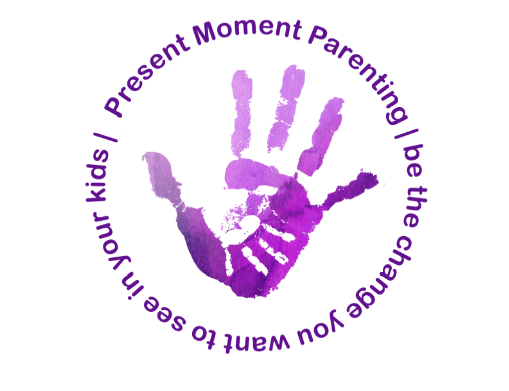
We take it for granted that although we often feel like hitting someone else (or biting scratching or throwing a tantrum) that we are able to override this primitive drive and behave like an at least semi-civilized human being (well, most of the time anyway). We assume that this is a normal ability that everyone of all ages shares, and we therefore expect everyone else to make good use of it. Including our kids. But the physiological truth of the matter runs a little bit deeper…
You see, your ability to do this relies heavily on a part of your brain called the prefrontal cortex. It has the ability to assess a situation, to take into account societal rules and norms, to problem solve better ways of behaving, and to generally override the more primitive parts of your brain that want to fight, scratch, scream and get their own way.
The sad thing about the prefrontal cortex (in terms of parenting) is that it is only fully developed in the early 20’s. Yup, that’s right folks, your kids do not have the physiological capacity to do everything that you are expecting of them. So essentially when we punish our children for those tantrums or impulsive behaviours, we are punishing them for not being fully developed yet. It’s like punishing your child for wetting her bed when she’s only 2.
Does this mean that we should leave them to behave like wild beasts and tear each other apart over the slightest sibling rivalry? Absolutely not. What we need to do is to be our children’s external prefrontal cortex. So what exactly does that mean?
It means that you need to be very present. You need to anticipate problems before they turn into nightmares. You need to see that arm going out for the punch and gently redirect it with a gentle, but definitely firm, “I won’t allow you to punch your brother”. It means that we need to be calm enough to help our children to calm down. To be observant enough to know what tends to set them off and anticipate those problems. We need to help them to behave in ways that are appropriate for the situation without shaming them for being underdeveloped in these areas.
This does not mean you need to stop your child from having these strong emotions. It just means that you need to assist them to redirect that energy elsewhere. For example, “I see you’re angry. You’re feeling so mad you want to hit something. That’s ok. You can hit this punching bag, but not your sister”.
Even as adults, when we go into fight or flight, our prefrontal cortex basically shuts down. This is why grown humans also lose it sometimes and attack people in the traffic or run away from accidents. In those moments where we’re losing it, it wouldn’t be helpful for our partner to come in and say “If you don’t stop that this instant I’m going to shut you in your room for the next hour or take away your phone (or some adult equivalent to time-outs or punishment). No. If we could stop freaking out we would. But we can’t in that moment. What we need is someone to say, “Hey, I can see you’re taking strain. That’s ok. I’ve got this.”
Just knowing that our emotions are ok, that they (and we) have been acknowledged, that we’re still loved even though we’re not at our best, that someone else is there to stop bad things from happening – that is what ultimately helps us to regain control.
We all fear that our children won’t become decent members of society and that we somehow need to drill this into them. We don’t. We need to model coping behaviours, we need to show them how we handle stress, we need to be a good example of dealing with the challenges that life throws at us. And then, while they’re still little, we need to be their prefrontal cortex – guiding them and showing them that they are also capable of different behavior and if they need help with that, that is ok.
Definitely expect good behavior, but expect to be a part of making that happen until their prefrontal cortexes are fully developed and they no longer need your gentle guidance.
Does your own prefrontal cortex seem to be offline when you need it most? My Parenting Breakthrough Experience will guide you through exercises designed to get it back up and running. Sign up now!
The sad thing about the prefrontal cortex (in terms of parenting) is that it is only fully developed in the early 20’s. Yup, that’s right folks, your kids do not have the physiological capacity to do everything that you are expecting of them. So essentially when we punish our children for those tantrums or impulsive behaviours, we are punishing them for not being fully developed yet. It’s like punishing your child for wetting her bed when she’s only 2.
Does this mean that we should leave them to behave like wild beasts and tear each other apart over the slightest sibling rivalry? Absolutely not. What we need to do is to be our children’s external prefrontal cortex. So what exactly does that mean?
It means that you need to be very present. You need to anticipate problems before they turn into nightmares. You need to see that arm going out for the punch and gently redirect it with a gentle, but definitely firm, “I won’t allow you to punch your brother”. It means that we need to be calm enough to help our children to calm down. To be observant enough to know what tends to set them off and anticipate those problems. We need to help them to behave in ways that are appropriate for the situation without shaming them for being underdeveloped in these areas.
This does not mean you need to stop your child from having these strong emotions. It just means that you need to assist them to redirect that energy elsewhere. For example, “I see you’re angry. You’re feeling so mad you want to hit something. That’s ok. You can hit this punching bag, but not your sister”.
Even as adults, when we go into fight or flight, our prefrontal cortex basically shuts down. This is why grown humans also lose it sometimes and attack people in the traffic or run away from accidents. In those moments where we’re losing it, it wouldn’t be helpful for our partner to come in and say “If you don’t stop that this instant I’m going to shut you in your room for the next hour or take away your phone (or some adult equivalent to time-outs or punishment). No. If we could stop freaking out we would. But we can’t in that moment. What we need is someone to say, “Hey, I can see you’re taking strain. That’s ok. I’ve got this.”
Just knowing that our emotions are ok, that they (and we) have been acknowledged, that we’re still loved even though we’re not at our best, that someone else is there to stop bad things from happening – that is what ultimately helps us to regain control.
We all fear that our children won’t become decent members of society and that we somehow need to drill this into them. We don’t. We need to model coping behaviours, we need to show them how we handle stress, we need to be a good example of dealing with the challenges that life throws at us. And then, while they’re still little, we need to be their prefrontal cortex – guiding them and showing them that they are also capable of different behavior and if they need help with that, that is ok.
Definitely expect good behavior, but expect to be a part of making that happen until their prefrontal cortexes are fully developed and they no longer need your gentle guidance.
Does your own prefrontal cortex seem to be offline when you need it most? My Parenting Breakthrough Experience will guide you through exercises designed to get it back up and running. Sign up now!







 RSS Feed
RSS Feed